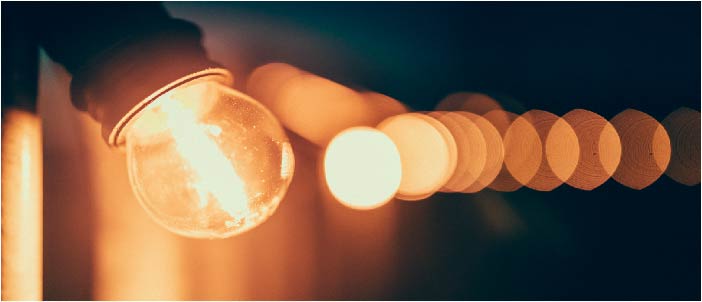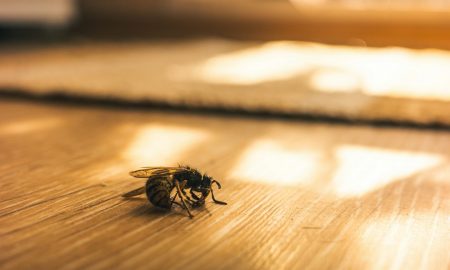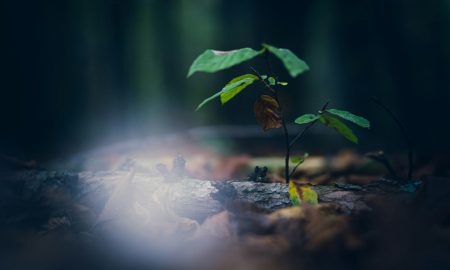
I opened my eyes very slowly; afraid that a dazzling light would hit my censored vision and drown me in pools of dark water, the blindness suffocating me and pushing me down somewhere where it was impossible to breathe. I almost expected it to zip into my pupils, bursting pouches of dark ink as it seared my inner muscles, flooding my everyday with nothing to see. I had this thought everyday at 7.30, despite knowing that the warm lights dimmed out at this time, the red and blue ones, threaded with the yellows.
Slowly then. Yes, muted shades of red, yellow and blue; I could hear sharp clicks in rhythmic intervals as the other boys switched off the yellow light bulbs in practiced motion. Still blinking, I saw men frozen in various states of having reached their switches, a performance-like daily ritual, a monotone so familiar it felt like instinct. A young new boy came in about four days ago. He has been tackling two switches at a time, just like AK did when he worked here. A light pushed off near the liqueur display window at one edge of the semi-circular bar, then a quick long-stepped run towards the parallel corner where we keep our low, obscure chairs and tables. Like a pole vault artist’s final act. A few more days and he would sync in perfectly with the others. Then he would disappear within the navy blue blue of his overalls that we all wear at The Bar. I heaved an old man’s sigh and closed my eyes again. I was going to be 34, but my eyes made me feel weak and haggard, as if they had seen enough and wanted no more. I could no longer watch the TV perched on the wall besides the low tables either, it felt…distant. Sigh. If only, she would walk in today and let me feast my eyes on her. I feel too lazy to want to look at something, anything, for more than five seconds. Except her. She always seems like she walked straight out of an old classic on TV, right into our bar.
The regulars would start trickling in soon. I opened my left eye to look at the time in the old, round clock hanging on the wall. I traced the outlines of the black hands inside the clock through the glass see-through holes in the door that separated the pub kitchen from the serving area. Not entirely sure of what my foggy eyes saw, I ran this information through my body clock and guesstimated. 7.32. It’s difficult to be wrong about time anymore.
It is said that my mother died when I was born. My father told me that the maternal mortality rate in my country has always been fairly high, information he acquired at the textile mill he used to work in when he just came to Bombay. My mother had walked malnourished from Gorakhpur to Bombay with my father 34 years ago. At that time, he blamed himself for putting her through such hardship when she was pregnant. But later he found out she was just one of the many wives who had died during childbirth. Several of his colleagues’ wives had died as well, including our neighbour’s wife. So it was his country, not him to blame. But my aunts who had walked the entire way with them whispered later that she was a raging insomniac who could not sleep since the time she conceived me, or before, if one is to believe her story. In moments of hysteria, she would remind her sisters of that one night that they had spent under a tree near a small village where everyone had slept off by the time they had arrived. Famished and tired, they could not bring themselves to wake anyone up to give them food and shelter. They had gathered under a tree, built a small fire and literally fainted under it. My mother, hungry, restless and scared could not sleep a wink. She then saw a bat swoop down from the tree towards her. She had just parted her lips to let out a piercing scream when it covered her with its wings and made feverish love to her. She woke up in the morning, her body aching with the pleasures of the night. After that, the bat visited her every night till I was conceived. She stopped complaining about food and water and walked the rest of the way in silence. Then the bat disappeared and she started complaining again. My father never learnt about the bat on the way to the city, nor my mother’s sleeplessness in Bombay, the women gulped down their sister’s secret and made it part of the blood that flowed thick in their veins. Born a man, I would have never known my mother, or the secret, had it not been for my own…strange…way of being.
I blinked again because she had walked in and stood just outside the door, her preferred place to be when she could not get a chair at the bar. I turned back towards the door, looked out of the two big round glass windows inserted in the door to catch a glimpse of her. There she was, making yellow lights dance on her eyelashes as she glanced around the pub, looking around to smile at fellow night patrons at the bar. I let myself into the room. Sometimes my job seemed worth it, especially on a night like this. You could see the numerous reasons that made her unpredictable visits to this bar maddeningly, tumultuously special.
Details of how I got to know the story of birth are sketchy and vague in my memory, pieced together with what my aunts tell me and flashes of vivid recollection that I am certain are the clear, undamaged parts of my memory bank, those that haven’t been clogged by my second aunt’s dough roller. It all came out one morning when my second aunt was trying to get me out of bed in the morning. In her anger, she hit me hard on the head with a dough roller. Apparently, I woke up and bit her hard on the veins in her left hand till thick blood started oozing out of her wrist at two tiny spots. She wailed and cried as the blood spilled onto the floor. It lay there till night, dried and caked up because none of them would dare come next to me for the fear of being bitten. That night, as I woke up and sat up, I saw the three of them standing next to me, huddled up close together. Apparently again, I asked them as soon as I sat up,
‘What happened to my mother?’
Thus came the story of my being, and growing up. I was born during the day, and my aunts said that I screamed and shouted tearlessly everyday till I was three, throughout the day, in protest for letting me out of the dark, warm cocoon I had been in for nine months. That I can believe, for I hate daytime more for my physical incapacity to handle it than for anything else. I am lazy. Eating, sleeping, drinking what my mother fed me, it was a life I could have led for the rest of my life. Till some doctor decided to let me out. While most people around the neighbourhood think I am dumb and worthless, the fact is that I did not go to school because I could not open my eyes during the day, my eyes would water and hurt from the blinding lashes of the sun. I would lie down throughout the day, sleeping lightly, restlessly like people do during the night because my body would burn from the heat of the millions of people working during the day. The noises they would make would reach my ears, my head would hurt till I would scream. I could only be at peace when night fell.
With no prospects of a day job and a minimal education at home, my father’s friends would teach me at night, I became the remains of the dream my father had seen on his way to the city from Gorakhpur. My father worked long and hard in the textile mill. When the mill shut down and father took to drink at home, I had no choice but to go look out for work. I would see my father and his friends drink and be happy, and sad. They would behave very differently from what they would behave usually. Sometimes, when I would be forced to wake up during the day, my father would be a completely different person. I liked what I saw during the night. I wanted to see people drink during the night. I wanted to give them drinks myself and see what happened to them. So I became a drink server at night. They told me that one could rise very high in the profession and become a bartender at a big club where rich people go.
And so it came to be that I became a waiter at a local bar where girls danced throughout the night. Men would come, throw money on them, fall in love with them and they would dance, their skirts billowing in the air as they twirled like the heroines in films. There was one who could have been one.
I had never seen anyone respond as instinctively to her body as she did. Bar lights forming glittering gold beads on her restless eyelashes, her lips parting, quivering slightly to take a sip of her whisky that yet another man offered her a drink to join him. Her legs folded under the high stools at the counter, she would bend sometimes while talking to stroke them, unaware of a dozen eyes following her hands. Her hands dancing to her words… ‘You are Light itself’, I heard a man whisper to her, her body pliable and soft- fingers, eyes, mouth, tongue and senses wanted to make love to her. The kiss in her mouth, the passion in her eyes, her laughter would create a frenzy. Some men would start dancing themselves, others would lunge at her, still some would gulp down one drink too much. Money would float in the air as if it was pouring from the ceilings. No man could touch her. Unless she willed it.
People told her I disappeared. But I hung in the corner of the pub, where she stood right next to me, and watched her smile at the next boy who had filled up my place as she took her drink from him and shook hands with him. Then she yawned and quickly took her hand away to cover her lovely-big-slowly widening mouth. She turned around and grinned sheepishly at the man she had brought in with her.
‘Haven’t slept much?, he asked.
‘No, I had the strangest dream last night…. I dreamt of Batman lifting me in his arms and swooping me away to his never, ever land.’
The gushing man got up to get another drink for her. All this while, I snuggled into my lit corner and grinned. I was happy I got stuck under her bar table two years ago.
D
Deliria…as.is





